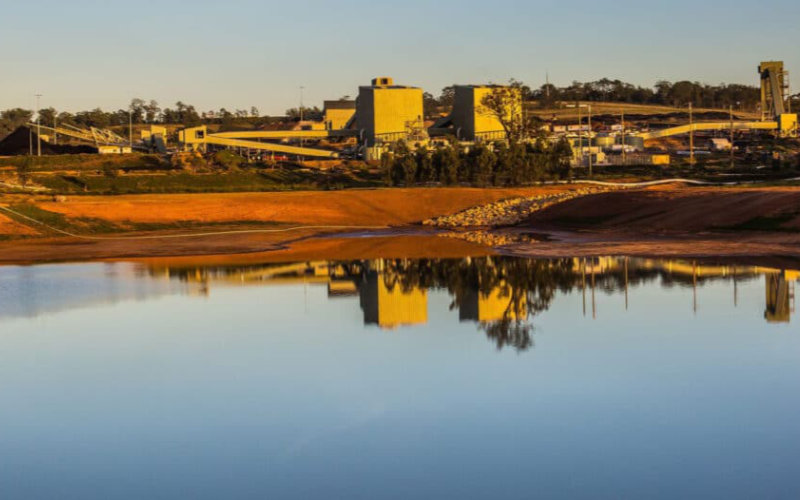The Albanese government has now approved or extended at least twelve fossil fuel projects and two carbon capture projects since taking office. Zacharias Szumer updates the tally with three freshly announced approvals.
The Albanese government’s fossil fuel approval tally has risen to twelve after Environment Minister Tanya Plibersek approved three coal mine extensions on Tuesday.
The approvals are for Whitehaven’s Narrabri Underground Mine Stage 3 Extension Project in NSW’s northwest, and two in the Hunter Valley: MACH Energy’s Mount Pleasant Optimisation project and Yancoal’s Ravensworth Underground Mine.
The approvals will extend the operating life of these projects into the late 2050s and 2060s; however, in some cases, companies plan to, or have been ordered to, cease coal extraction earlier.
For instance, the Ravensworth project estimates that it will cease production by 2032, and the government’s approval of the Mount Pleasant Optimisation project said the company must “cease extraction by 22 December 2048.”
Australia Institute research director Rod Campbell said the approvals were “inconsistent with Australia’s climate goals.”
“To approve huge new coal mines while bidding to host the world’s major climate conference, COP31, is a slap in the face to our Pacific neighbours, who have clearly and repeatedly requested that Australia stop expanding fossil fuel production,” he said.
In June, MWM reported that the Albanese government had approved or extended at least nine fossil fuel projects and two carbon capture projects since taking office.
MWM’s tally only includes extractive projects – not supporting infrastructure such as gas pipelines or railways for coal mines.
Approvals slammed by Greens, praised by Nats
In a Sky News interview with Andrew Bolt, Nationals Senator Matt Canavan “welcome[d]” the approvals, adding that “it was a little bit late, but better late than never”.
Canavan said the companies had been “waiting with bated breath” for the approvals.
Whitehaven’s Narrabri extension project was first referred to the federal department in 2019, MACH’s Mount Pleasant project in 2020 and Yancoal’s Ravensworth project in 2022.
Plibersek said her government had made its decisions “in accordance with the facts and the national environmental law” and that it would “continue to consider each project on a case-by-case basis, under the law.”
She added that the projects’ emissions would be accounted for by “the government’s strong climate laws that were supported by the Greens political party and independents”, referring to the government’s Safeguard Mechanism.
However, Greens Spokesperson Senator Sarah Hanson-Young said the three approvals showed “the Albanese Government has zero credibility on the environment. The Labor Government is deliberately and proactively approving climate-wrecking coal mines under laws they know are broken. It’s wrong and irresponsible.”
Meanwhile, Campbell said:
The fact that these new coal mines can be approved, despite the government’s Safeguard Mechanism being in place, shows just how inadequate the policy is.
The Safeguard Mechanism only covers emissions released by mining and transporting exported coal to port, not when it’s burned to generate electricity or make steel, and the mechanism has been criticised for its heavy reliance on questionable carbon offsets.
Safeguard Mechanism is great … for big polluters and landowners, not so much for the planet
Economic benefits overestimated?
The NSW Department of Planning and Environment released an analysis of the Narrabri project in early 2020, which found “significant net economic benefit” of an estimated “$599 million” to the state, primarily from royalty and tax payments.
It said this figure, provided by consulting firm AnalytEcon, was “inclusive of estimated costs for environmental externalities and after internalisation of most environmental management costs by [Whitehaven].” However, an Australia Institute paper from 2022, authored by Campbell, said AnalytEcon’s methods “radically overstate the economic case for their client’s project.”
For one, it claimed that the project’s estimated tax payments were “100 times greater than the tax paid by the entire Whitehaven group from 2013-14 to 2019-20, and using “more realistic tax payments” meant the project’s net present value (NPV) would be zero.
It also said that the consultancy had taken “the approach that the whole world bears the cost of climate change equally, so their cost-benefit analysis focused on NSW only includes the very small portion of the climate damage that they calculate would be borne by NSW”.
Report claims super funds are lying to their members on climate risk
Over the last few years, a small community group represented by Environmental Justice has sought to force the government to consider wider climate impacts in its fossil-fuel project approval process.
The Federal Court rejected the challenge in September last year, saying it was a matter for parliament, and in August of this year, the High Court declined to hear an appeal.
Plibersek suggested in a recent interview that she might consider inserting a climate trigger into the Environment Protection and Biodiversity Conservation Act – a key Greens’ demand – but Prime Minister Anthony Albanese quickly shot down the idea.
Whole Nine Yards: Albanese government fossil project tally rises to 9
Zacharias Szumer is a freelance writer from Melbourne. In addition to Michael West Media, he has written for The Monthly, Overland, Jacobin, The Quietus, The South China Morning Post and other outlets.
He was also responsible for our War Power Reforms series.

